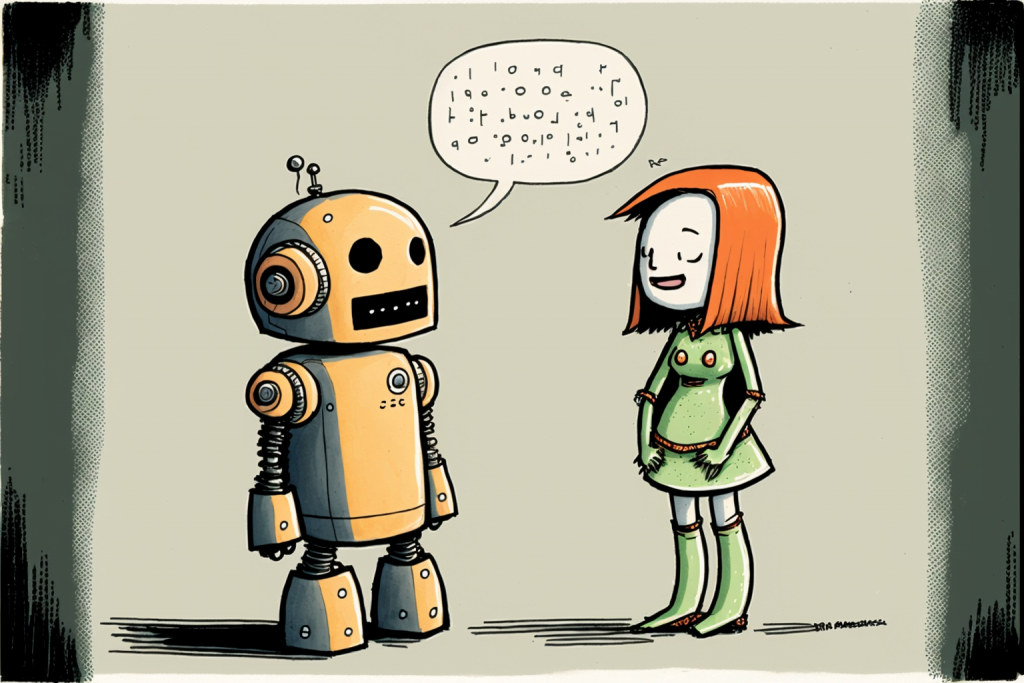
As a few readers may recall, this is the third time I’ve addressed this topic, which has now been haunting me for several years, in this blog. Partly that is because I believe, with Nietzsche, that the fact that everyone thinks something does not prove it is true. If anything, to the contrary. And partly because, if the study of history, to which I have devoted my life, is to go beyond mere incoherent tales and be of any use at all, some things must remain the same.
What I wanted to know is this: against the background of the constant and often tumultuous change that everyone keeps talking about, is there anything that does not and will not change? Originally I hoped to write a book about that question; having already published a volume about the history of man’s attempts to see into the future, at first I thought the task would be fairly easy. Never have I been more mistaken! In the event writing the new book proved to be beyond my powers, at least for the moment. So I let it go, more or less.
Doing some shopping earlier this morning, for some mysterious reason I found myself thinking about the topic. As many others have also noted, often the best ideas seem to come out of nowhere. Especially during exercise; and especially if the exercise is neither too strenuous to allow for thought or too light to make a difference to the heart and lung system in particular. Think of James Watt who had the idea of a separate boiler, leading to the modern steam engine and thus to the industrial revolution, come to him, completely unexpected, during a Sunday walk in Edinburgh Common.
So what I am going to do today is draw up a list, however incomplete and however superficial, of some propositions that, as far as I can see, have been, are and presumably always will remain true. Such as form a sort of skeleton, or chassis, or framework, for social life to hang itself on, so to speak. As I do so, maybe, just maybe, one thing will lead to another. Until, probably by working by fits and starts, one day I shall have something to say on the topic that is more inclusive, more solid, and more worth publishing in some other suitable format.
*
The laws of physics the laws of physics provide just what I’ve been looking for: namely, a sort of skeleton, or chassis, or framework, for social life to hang itself on. The laws of physics do not change—or else they would not be laws.
*
Emotion, Thought, Knowledge and Understanding
Just how emotion, thought, knowledge and understanding grow out of, and interact with, our biological makeup on one hand and the surrounding physical world is unknown. And unknown it will almost certainly remain until the end of time.
Now as ever, so much of our thought is governed by our cultural background on one hand and wishful thinking on the other as to make “objectivity” very difficult, often all but impossible.
Everyone believes he is the most intelligent, except for a few who agree with him (Thomas Hobbes).
The more we learn about the world, the more numerous and more difficult the questions that present themselves and demand an answer.
Obtaining a good picture of the past is hard enough; obtaining a good picture of the future, all but impossible.
Economic Life
Man does not live by bread—here broadly understood as nutrients of every kind—alone. That said, the need for bread goes a long way—though never all the way—to govern the shape and functioning of every individual and every society. And the other way around.
There never has been a human society whose members, or at any rate many of them, did not produce/work for a living.
Where an army cannot go, an ass loaded with gold will (Philip II, father of Alexander the Great).
Resources, whether in the form of nutrients, or living space, or mates, or allies, or honors, are always limited. Those who pursue them will face competition and pay a price; those who own them will have to defend them.
Prices are governed by the interaction between supply and demand.
Gresham’s law: Bad money will drive out good.
Wealth is always relative. That is why poverty will never disappear from the face of the earth.
Psychology
The essence of life (not just human life, but that is beside the point in the present context) is the quest for growth/power in its endlessly varied forms (Nietzsche). Conversely, when the quest comes to a halt death cannot be very far away.
Freud was right. Not only does the sub-consciousness really exist, but it strongly influences everything we are, think and do.
Given the right circumstances, almost any person on earth is capable of extreme tenderness and extreme cruelty. Not seldom, both.
As often as our senses tell us the truth, they deceive. Ditto, our memory.
Very often, when circumstances prevent us from venting our anger on others we will direct it at ourselves. And vice versa.
The one thing we humans cannot do is sit still and alone in a room and do nothing (Blaise Pascal).
Social Life
Everything in social life is interwoven with everything else and impacts on everything else,
Man is a social animal (said Aristotle). No man can live on his own.
Absolute freedom can only exist in a desert.
If only because they cannot cope on their own, the young are always subject to some kind of education.
No society has ever been, or ever will be, without religion, art, music, fashion, ceremonies, feast days, games, etc.
No society has ever been, nor will be, completely egalitarian in the sense that every one of its members occupies a similar position, owns the same amount of goods, is addressed in the same manner, and always treats all the rest equally.
Politics
Man is the conspiring animal (Lyndon LaRouche).
Politics is the art of the possible (Otto von Bismarck).
It is politics that determine who gets what (Vladimir Ilyich Lenin).
Any government is better than no government (Thomas Hobbes).
Telling truth to power is always difficult, often dangerous.
Power corrupts, and absolute power corrupts absolutely (Lord Acton).
Success has many fathers, failure is an orphan.
Had it been possible to open a tyrant’s soul, it would be found covered with scars.
Niccolò Machiavelli: Amidst so many who are bad, how can a good one maintain himself?
Aside: Gender and Sex
Women form half of humanity, and not the least important half.
So powerful and potentially so disruptive is the drive to mate that no society has ever existed that did not do its best to regulate it in one way or another.
Everything about women is a riddle, and the riddle has one solution: pregnancy (Nietzsche).
The relationship between the sexes is highly asymmetrical. The more manly a man, the more women will like him. The more a woman tries to become/behave like a man, the less men will like her (Jean-Jacques Rousseau).
Now as ever, women do most household work. Ditto childcare, nursing, social work, etc.
Society is run by men and strong women (Margaret Mead).
Women on average are smaller, lighter, weaker, less robust and more vulnerable than men. That is why they need the protection of men. Not only does that need go a long way to govern the relationship between men and women, but it guarantees that, in the future as in the past, women will be dependent on men. And, to some extent, subordinate to them.
A man who sacrifices himself for a woman will be admired. A man who allows a woman to sacrifice herself for him will be ridiculed, despised, or both.
A man who competes against a woman and loses, loses. A man who competes against a woman and wins, also loses.
A man’s pleasure is in a woman’s hand (Aristophanes).
Where women are respected, the gods dwell (Hindu proverb).
War
No known human society has ever been, nor ever will be, without some form of legalized group violence. Aka, war.
If you want peace, prepare for war (Roman proverb).
A centralized state is hard to conquer but easy to hold. With a decentralized one the opposite applies (Machiavelli).
Dulce bellum inexpertis (Desiderius Erasmus: sweet is war for those who have not experienced it). But don’t get me wrong: terrible as war is, and precisely for that reason, it can also provide the greatest joy there is.
War is motivated by a combination of interest—hence Clausewitz’s famous dictum—on one hand and emotion on the other. The two can, and sometimes do, pull in opposite directions.
War is a moral and physical struggle waged by means of the latter (Clausewitz again).
The essence of war is fighting around which everything else revolves. No fighting, no war.
The cardinal coordinates of war are violence, pain, danger, fatigue, uncertainty and friction.
War is a duel on an extended scale. Ancient or modern, large or small, it is governed by the rules of strategy just as many games are.
The principles of war—intelligence, deception, surprise, concentration, economy of force, and the like—are eternal. Not one of them has changed, and not one of them ever will.
The larger the distance between base and front, the more expensive and the more difficult waging war becomes.
Other things equal, the stronger form of war is the defense. Still, no war has ever been won by a pure defense.
A stream of water pouring out of a bucket will only spread for so long before coming to a halt. Similarly, attackers only have limited time at their disposal. Either they win within that time, or else they will be forced on the defense. For the defender, provided only he can hold out long enough, the opposite is the case.
A sword, plunged into salt water, will rust!
The longer a war, the less profitable it is likely to be.
Only the dead will see the end of war.
*
Given these and tens of thousands of other truths, how can anyone seriously maintain that nothing ever changes?









